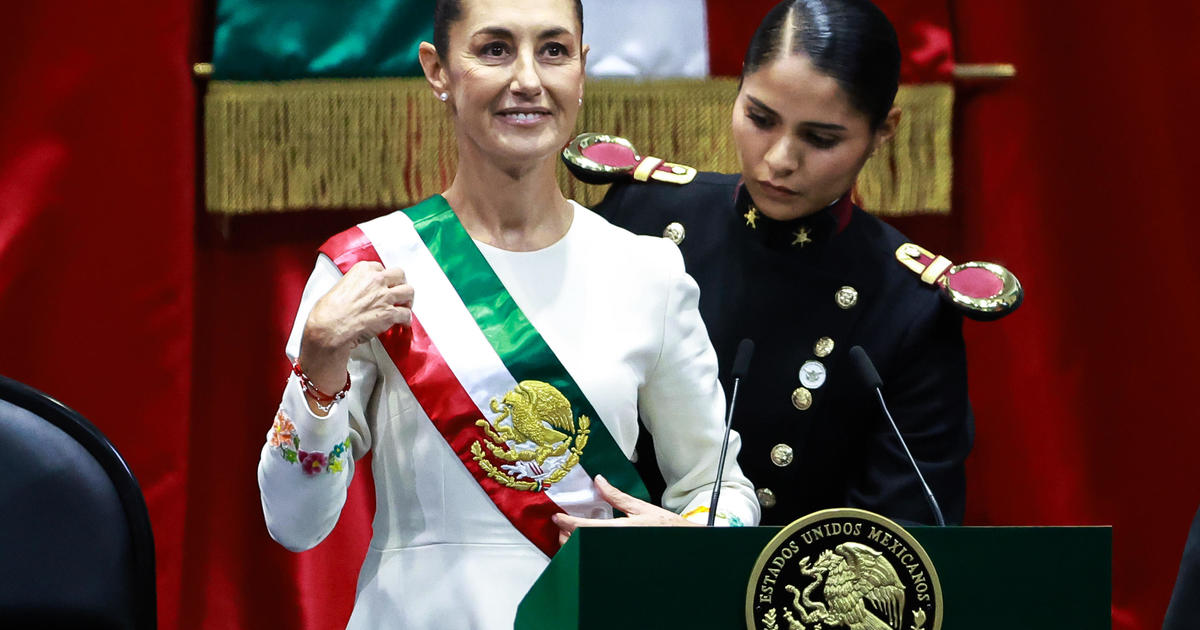Claudia Sheinbaum’s inauguration as Mexico’s first female president marks a historic moment, signifying a significant shift in the country’s political landscape after over two centuries of independence. Her election victory, secured with nearly 60% of the vote, followed a campaign emphasizing continuity with the policies of her predecessor, Andrés Manuel López Obrador, while subtly showcasing her distinct personal and political style. While she champions López Obrador’s initiatives, Sheinbaum’s background in science, her data-driven approach, and her less overtly populist demeanor suggest a potentially different governing style compared to her mentor. This transition, however, presents both opportunities and challenges for Mexico. Her background offers unique insights and priorities that will shape her presidency, potentially impacting various sectors from economic policies to social reforms. The upcoming years will be pivotal in observing the evolution of her leadership and assessing its effect on Mexican society.
Sheinbaum’s Political Lineage and Ideological Stance
Continuity and Divergence from López Obrador
Sheinbaum’s campaign strategically positioned her as the heir apparent to López Obrador’s legacy. She publicly endorsed and defended many of his key policies, ensuring a smooth transition and maintaining the support of his strong voter base. This continuity extends to significant policy decisions like the controversial judicial reform, where Sheinbaum echoed López Obrador’s justification, promising it would not hinder economic growth. Similarly, her support for placing the National Guard under military command demonstrated adherence to the existing government agenda. However, Sheinbaum also subtly diverges from López Obrador’s more charismatic and personal leadership style. Her background in science and her emphasis on data-driven decision-making suggest a more pragmatic, evidence-based approach to governance. This was evident during the COVID-19 pandemic where, while mayor of Mexico City, Sheinbaum implemented stricter measures compared to the national-level approach under López Obrador.
Leftist Roots and International Relations
Sheinbaum’s roots in a traditionally leftist political movement, even predating López Obrador’s populist wave, inform her ideological perspective. Her family’s activism during the 1968 student movement and her involvement in leftist youth groups shaped her understanding of social justice and political action. While the details of her past interactions with left-wing groups, like the Colombian M-19 as alluded by President Gustavo Petro, require further clarity and official statements, her background contributes to the nuances of her leadership. In the realm of international relations, this ideology was apparent in her decision not to invite the Spanish King to her inauguration. Her decision reflects a firm stance on historical grievances and national pride, a testament to her commitment to specific facets of her ideology. Her relationships and engagements in international diplomacy may redefine Mexico’s foreign policy approach in the coming years. It is this mix of traditional leftist values and her current political context that makes deciphering her governing style uniquely captivating.
Sheinbaum’s Background and Governing Style
Scientific Approach to Governance
Sheinbaum’s scientific background, holding a Ph.D. in energy engineering, is unique among Mexican presidents. This scientific temperament translates to her policy-making approach, promoting a reliance on data, evidence, and research. This approach was notably seen in her management of the COVID-19 pandemic in Mexico City. The contrast between her response and the national-level response shows a dedication to evidence-based policy over solely political maneuvering.
Data-Driven Decisions and Policy Implementation
Her decision-making process seems heavily influenced by empirical data, leading to what many see as more nuanced responses. This contrasted with López Obrador’s often more improvisational and populist approach. In practice, this might result in slower decision-making as data is analyzed thoroughly and potential policy implications scrutinized for long-term effects, a potential drawback balanced by the potential for greater success over longer time periods.
Sheinbaum’s Challenges: Gender, Violence, and Economic Inequality
Addressing Gender Inequality
Despite marking a milestone as Mexico’s first female president, Sheinbaum inherits a country with deeply entrenched gender inequality. High levels of violence against women remain a pressing concern, highlighted by incidents such as the assassination of Mayor Yolanda Sánchez Figueroa shortly after Sheinbaum’s election. Her administration will face significant pressure to tackle these issues effectively. It remains to be seen how Sheinbaum will approach this issue, as she and López Obrador have previously been criticised for not exhibiting enough empathy towards victims. The challenge lies in balancing the symbolic importance of her presidency with substantive action to address the systemic causes of violence and gender disparity.
Economic Disparities and Social Justice
Mexico grapples with considerable economic inequality, particularly affecting women, Indigenous communities, and those in rural areas. The significant amount of women in low-paying and unstable domestic service reflects larger societal structures. Sheinbaum’s administration will have to formulate effective strategies to narrow this gap, fostering equitable growth that includes all citizens. Although there has been increased representation of women in Congress (at a 50-50 split due to quotas), actual gender equality remains elusive and may not automatically improve just because a woman holds the office of president. Her ability to tackle these significant social and economic inequalities will define her success, making these some of the most substantial challenges to her administration.
Take Away Points:
- Claudia Sheinbaum’s presidency represents a historic moment for Mexico, ushering in a new era of leadership.
- Her approach combines continuity with López Obrador’s policies and a distinct, data-driven style.
- Addressing entrenched gender inequality and economic disparities will be critical challenges.
- Her scientific background and policy approaches may lead to potentially significant shifts in the country’s future.
- Sheinbaum’s success will be judged not only by political achievements but also by her impact on social justice and equality.




